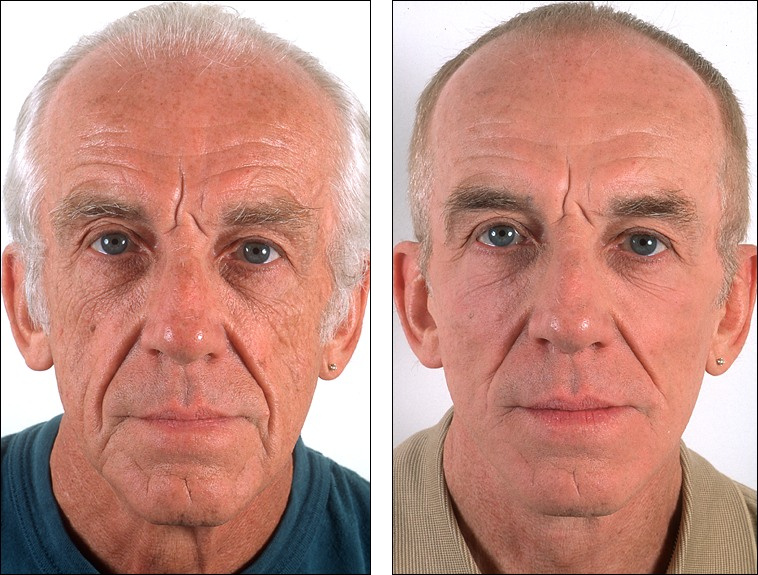
Face Time: More Men Getting Plastic Surgery
Face-lifts, Botox help older men compete for jobs
Face-lifts for men rose 14 percent in 2010, and Botox injections increased 9 percent, according to the latest figures from the American Society of Plastic Surgeons. More men also chose skin fillers to smooth out creases and wrinkles, as well as liposuction for love handles, and even muscle augmentation or also known as muscle implants.
While the vast majority of cosmetic surgery is still performed on women, men underwent more than 1 million cosmetic procedures in 2010, both minimally invasive and surgical, an increase of 2 percent over 2009. Overall, men and women spent a total of $10.1 billion on cosmetic procedures last year.
“Face-lifts are on the rise among male patients 55 and older,” says ASPS president Phillip Haeck, a plastic surgeon in Seattle. “Many men say they don’t look as young as they feel, and they want to change that.”
A case in point — Joe Marek, 57, a software engineer in Laurel, Md. He exercised, watched what he ate, liked to take active, outdoorsy vacations in places like Costa Rica, and generally thought of himself as a fit, energetic guy. Except when he looked in the mirror.
“I was getting that drooping of the eyes, a little turkey neck. And people would tell me I looked tired when I wasn’t,” he recalls.
He didn’t want to look 20 years younger, he emphasizes, “I just wanted to look like I felt.”
So last year, Marek got a face-lift. And an eye-lift.
The result, he says, made him look “refreshed.”
“People would say to me, ‘You look different. Did you get a haircut? Shave your mustache?’ Other people, who I haven’t seen in a while, didn’t recognize me.”
His girlfriend, whom he met before he had the face-lift, “was really excited. She likes it quite a bit.”
Investing in a new look
Marek’s plastic surgeon, Stephen Baker, M.D., of Georgetown University in Washington, says Marek is typical of a lot of the older men he sees in his practice, including those retiring from the military who want to start a second career and consultants anxious to stay on top of their game. “I get a lot of professionals who are hitting their prime and want to work into their 70s. They feel good about themselves. They’re healthier because of modern medicine, and they want to look in the mirror and see that vitality,” Baker says.
For Haeck, many of his West Coast patients are baby boomers looking for jobs or competing with younger workers in the workplace. “Baby boomers don’t want their looks hindering the job search,” he says. And as the recession loosens its grip a bit, “many men are investing in themselves to attack the job market.”



